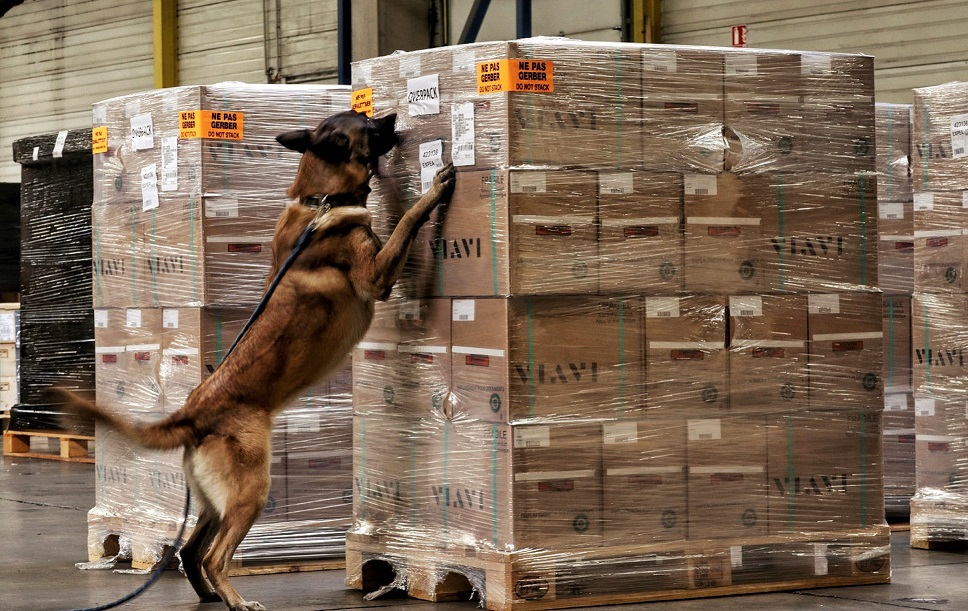WFS and Diagnose test the use of dogs to detect lithium batteries
26 / 09 / 2022

Source: Diagnose/WFS
Cargo handler Worldwide Flight Services (WFS) and dog-handling detection firm Diagnose have launched a project to see if canines can be used to help detect undeclared lithium batteries.
The two firms carried out a six-month feasibility study using dogs to detect the presence of lithium batteries in cargo shipments, mail and baggage involving thousands of cargo consignments.
The dogs achieved 100% accuracy, the partners said.
David Clark, global head of health, safety, security and environment (HSSE) at WFS, said: “Over the six months, the two dogs involved in the trial were very precise in their detection of lithium batteries, with 100% accuracy.
“They located both lithium ion and lithium metal phone batteries in various cargo units whose volume sometimes exceeded two to three cu m.
“More specifically, they were able to detect a single button battery (ion metal battery) within a one cu m shipment.
“In response to one of the biggest aviation safety challenges, WFS and Diagnose believe this can help to significantly strengthen safety measures.”
The test phase was conducted at the WFS cargo terminal in Lyon and involved two dog detection teams.
The trial enabled the dogs to check large volumes of different types of cargoes and produced “remarkable results”.
The two companies said that in future phases, dogs could be deployed across European Union airports or in response to customer requirements within five to six months as more dog detection teams are trained.
Oren Sapir, chief executive at Diagnose-parent ICTS Europe group, added: “The challenge presented by lithium batteries is a major concern for aviation safety.
“Goods that are properly declared, correctly packed and, above all, in good condition present little risk, but it is clear that batteries, or devices containing batteries, are transported every day in passenger luggage and in airfreight shipments without being declared.
“By working in partnership with WFS, we believe the results of our dog detection trial can be a very important breakthrough in ensuring the highest standards of aviation safety, which are our shared priority.
“We will be presenting the results of our trials in France to IATA and the regulatory authorities in the next stage of this initiative.”
Air cargo and the wider aviation industry have been grappling with the challenge of detecting undeclared lithium batteries on aircraft for years.
There have been a number of incidents over the years where the batteries have caused fires on aircraft.
At the IATA AGM in June, the airline association called on governments to further support the safe carriage of lithium batteries by developing and implementing global standards for screening, fire-testing, and incident information sharing.
IATA said the challenge is the rapid increase in global demand of lithium batteries. The trade association explained the market is growing 30% annually, bringing many new shippers into air cargo supply chains.
The organisation has asked governments to develop safety-related screening standards and processes for lithium batteries; develop and implement a fire-testing standard that addresses lithium battery fire containment; and enhance safety data collection and sharing information between governments.
IATA calls on governments to support safe lithium battery transportation













